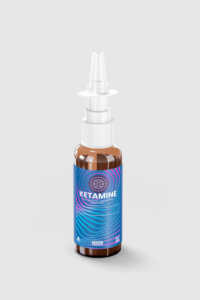Dose-related effects of ketamine for antidepressant-resistant symptoms of posttraumatic stress disorder in veterans and active duty military: a double-blind, randomized, placebo-controlled multi-center clinical trial.
Abdallah, C.G., Roache, J.D., Gueorguieva, R. et al. Dose-related effects of ketamine for antidepressant-resistant symptoms of posttraumatic stress disorder in veterans and active duty military: a double-blind, randomized, placebo-controlled multi-center clinical trial. Neuropsychopharmacol. 47, 1574–1581 (2022). Highlights: The standard ketamine dose treated depression significantly more than placebo. Ketamine produced dose-related dissociative and psychotomimetic effects, which returned to baseline within 2 h and were less pronounced with repeated administration. Involved 158 veterans and service members with treatment resistant PTSD that failed prior antidepressant treatments in the past. Veterans were divided into a placebo group, and 2 separate ketamine treatment groups; a low dose group (0.2mg/kg), and a standard dose group (0.5mg/kg). Results and Conclusions: The primary outcome measure was the self-report PTSD Checklist forDSM-5 (PCL-5), and secondary outcome measures were the Clinician-Administered PTSD Scale for DSM-5 (CAPS-5) and the Montgomery Åsberg Depression Rating Scale (MADRS). The standard ketamine dose ameliorated depression measured by the MADRS significantly more than placebo. Ketamine produced dose-related dissociative and psychotomimetic effects, which returned to baseline within 2 h and were less pronounced with repeated administration. There was no evidence of differential treatment discontinuation by ketamine dose, consistent with good tolerability. This clinical trial failed to find a significant dose-related effect of ketamine on PTSD symptoms. Secondary analyses suggested that the standard dose exerted rapid antidepressant effects.












































